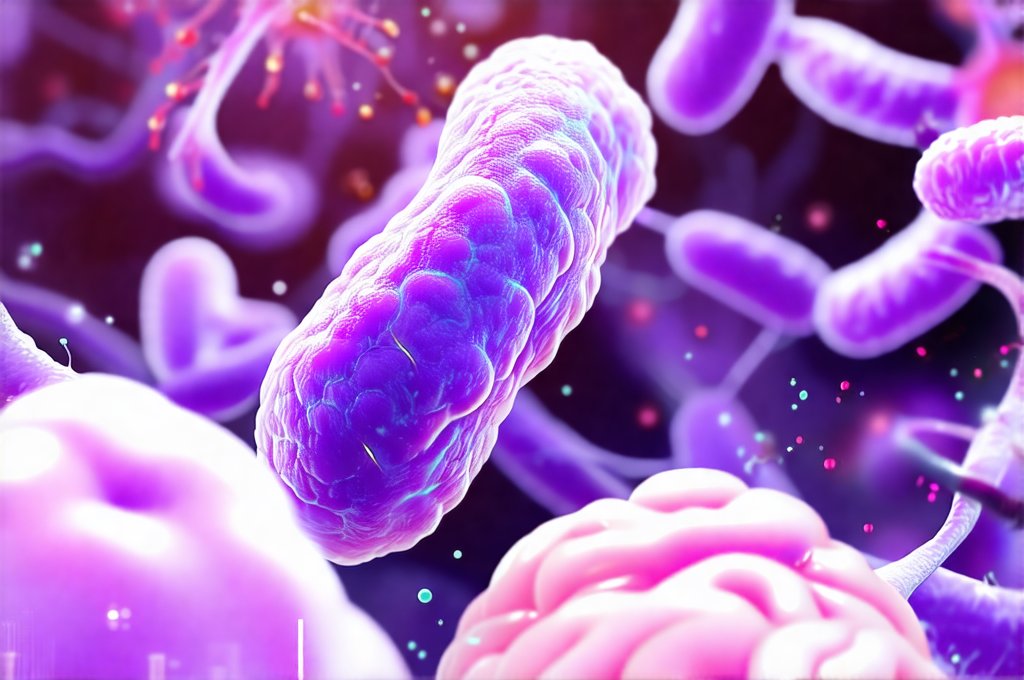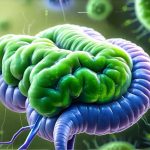The intricate world within us – our microbiome – is increasingly recognized as fundamental to overall health. For years, we focused primarily on fighting off harmful bacteria, but now science reveals that a thriving community of trillions of microorganisms (bacteria, fungi, viruses, and other microbes) residing in our gut (and elsewhere!) are critical for digestion, immunity, mental wellbeing, even skin health. This delicate ecosystem isn’t static; it’s constantly influenced by factors like diet, stress, medication (especially antibiotics), environment, and lifestyle. When this balance is disrupted – a state called dysbiosis – it can manifest in numerous ways, signaling that your microbiome might need some attention. Recognizing these signs early on is the first step toward restoring harmony and optimizing your wellbeing.
Understanding that the microbiome isn’t just about gut health is crucial. It’s an interconnected system; imbalances can ripple throughout the body. The symptoms of dysbiosis are often subtle, making them easy to dismiss or attribute to other causes. However, chronic issues, persistent discomfort, or a cluster of seemingly unrelated problems should prompt consideration of your microbiome’s state. This isn’t about chasing the latest wellness trend; it’s about acknowledging that supporting this internal ecosystem is foundational for long-term health and vitality. The goal isn’t necessarily to “reset” in the sense of completely wiping the slate clean, but rather to cultivate a more diverse and resilient microbial community. If you are experiencing chronic issues, it may be time to consider deeper GI investigation.
Recognizing the Signals: Common Symptoms of Microbiome Imbalance
Dysbiosis doesn’t always scream at you; it often whispers through subtle changes and persistent annoyances. Many people experience a combination of symptoms that, individually, might not seem alarming, but collectively point towards an underlying imbalance. The key is to pay attention to patterns and chronic issues rather than isolated incidents. One common indicator is digestive distress. This can range from bloating, gas, abdominal pain, diarrhea, or even constipation – all signaling that the gut isn’t functioning optimally. These aren’t necessarily signs of a serious illness but rather clues that the microbial community responsible for healthy digestion is struggling.
Beyond digestive issues, look for changes in mood and mental clarity. The gut-brain axis is a well-established connection, and an imbalanced microbiome can impact neurotransmitter production (like serotonin, often called the “happy hormone”). This can lead to increased anxiety, depression, brain fog, or difficulty concentrating. Another surprising sign can be skin problems – conditions like eczema, acne, psoriasis, or even unexplained rashes might have a link to gut health. The inflammation caused by dysbiosis can manifest externally through these skin issues.
Finally, consider your immune function. A significant portion of the immune system resides in the gut, and a healthy microbiome is essential for its proper functioning. Frequent illnesses, slow recovery from colds or infections, or even autoimmune flare-ups could indicate a weakened immune response linked to microbial imbalance. It’s important to remember that these symptoms can have many causes; however, if you’re experiencing multiple signs and suspect your microbiome might be playing a role, exploring supportive strategies is worth considering. If you are unsure about your gut health, it may be time for a second opinion.
Dietary Clues: What Your Food Choices Reveal
Dietary habits are arguably the most significant influence on the microbiome. A diet heavily reliant on processed foods, sugar, and saturated fats can deplete beneficial bacteria while promoting the growth of harmful ones. Conversely, a diverse diet rich in fiber, fermented foods, and plant-based nutrients fosters a thriving microbial ecosystem. – Consider your intake of refined sugars: Excessive sugar feeds undesirable microbes, contributing to dysbiosis. – Evaluate your fiber consumption: Fiber acts as “food” for beneficial bacteria, promoting their growth and diversity. – Aim for 25-35 grams daily from sources like fruits, vegetables, whole grains, and legumes. – Assess your intake of processed foods: These often contain additives and emulsifiers that can disrupt the gut microbiome. It’s important to understand how you’re overfeeding your microbiome as well.
The impact of specific dietary choices extends beyond simply adding or removing food groups. For example, frequent antibiotic use (often in conventionally raised meat) can contribute to antibiotic resistance within our own gut bacteria. Similarly, artificial sweeteners have been shown to alter the composition of the microbiome, potentially leading to glucose intolerance and other health issues. Prioritizing whole, unprocessed foods is a foundational step towards supporting a healthy gut. This isn’t about restrictive dieting; it’s about making mindful choices that nourish both you and your microbial community. In fact, a diet reset might be just what you need!
The Role of Stress & Lifestyle Factors
While diet plays a major role, the microbiome is also deeply affected by stress and lifestyle factors. Chronic stress, for instance, can significantly alter gut microbiota composition and function. When stressed, our bodies release cortisol, which impacts digestion and immune function, ultimately influencing the microbiome. This creates a vicious cycle: stress disrupts the microbiome, and an imbalanced microbiome can exacerbate feelings of anxiety and stress. – Implement stress-reducing techniques like meditation, yoga, deep breathing exercises, or spending time in nature. – Prioritize adequate sleep: Sleep deprivation negatively impacts gut health and weakens the immune system.
Beyond stress, other lifestyle factors play a role. Lack of physical activity has been linked to reduced microbial diversity. Regular exercise, even moderate intensity, can promote a more balanced microbiome. Exposure to diverse environments (spending time outdoors, gardening) also contributes to microbial richness. Finally, consider your exposure to toxins and environmental pollutants – these can disrupt the gut ecosystem and negatively impact health. A holistic approach that addresses stress, sleep, activity levels, and environmental exposures is essential for optimizing microbiome health.
Simple Steps Towards Microbial Support
If you suspect your microbiome might need support, there are several steps you can take. It’s important to emphasize that “resetting” isn’t about drastic measures; it’s about gradual changes and consistent habits. 1. Incorporate fermented foods: Foods like yogurt (with live cultures), kefir, sauerkraut, kimchi, and kombucha introduce beneficial bacteria into the gut. Start with small amounts and gradually increase intake to avoid digestive upset. 2. Increase fiber intake: As mentioned earlier, fiber is essential for feeding good bacteria. Focus on a diverse range of plant-based foods. 3. Consider prebiotics: Prebiotics are compounds that nourish beneficial bacteria in the gut. Sources include garlic, onions, leeks, asparagus, bananas, and oats. 4. Minimize antibiotic use: Only take antibiotics when absolutely necessary and prescribed by a healthcare professional. If you must take antibiotics, consider supporting your microbiome with probiotics afterward (consulting with a doctor is advisable). Recognizing signs that your gut needs a reset can be the first step to improved health.
It’s important to note that supplements aren’t always necessary or even the best solution. Food-first approach should be prioritized. Probiotic supplements can be helpful for some individuals, but choosing the right strain and dosage can be tricky. Consulting with a healthcare professional specializing in gut health is recommended before starting any supplementation regimen. Finally, remember that consistency is key. Building a healthy microbiome is an ongoing process, not a quick fix. It requires sustained effort and attention to lifestyle factors. You should also be aware of fermentation overstimulation. And remember, if you’re over 50, it might be time for an earlier colonoscopy.


















